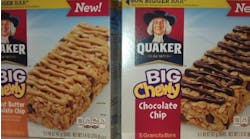I don't want to say we were predisposed to a heavily international company for this year's Processor of the Year. But it does seem we've done a fair amount of writing about international expansion over the past 12 months. And our past Processors of the Year have, intentionally or not, followed themes.
- The overview/business article can be found at 2011 Processor of the Year: H.J. Heinz Co.
- Heinz's product development process, including a relatively new R&D center can be found at Pittsburgh Product Development Touches the World
- We touch Heinz's packaging innovations in Pouring and Squeezing Out Package Innovations
- You can find our coverage of Heinz's manufacturing philosophy, based on global coordination and local execution in A Global Standard for Local Performance and 118 years of Modern Technology at Muscatine
When the recession was just starting and Americans and Canadians seemed to return to simple prepared foods and home cooking, we featured Hormel (2008). Despite a rocky economy – maybe because of it – 2009 was a year of blockbuster mergers & acquisitions, so we focused on Nestle USA. Last year, when it was apparent private label had made a huge dent in the market, we turned to TreeHouse Foods.
International expansion and especially emerging markets seem to be on every food executive's mind these days. No company exemplifies – or has succeeded at – that strategy better than H.J. Heinz Co.
Interestingly, overseas markets are nothing new to Heinz. As we dug into this story, we learned that just 17 years after founding the company, Henry John Heinz received a big order, the first of many, from London retailer Fortnum & Mason. At a time when his domestic business began to sag, H.J. opened a London office. By 1896, Heinz was a global company.
Nearly two-thirds of the modern Heinz's $10.7 billion in sales come from outside the U.S., and 20 percent are from emerging markets. That's double their contribution as recently as 2005, but maybe half of what the company expects in the future.
And Heinz remains its own manufacturer. Company officials wouldn't provide an exact figure, but the overwhelming majority of its products are manufactured in its own plants. That's something we admire.
Something else admirable: Micronutrient malnutrition, particularly iron deficiency, affects more than 2 billion people worldwide, roughly a third of the world's population, Heinz officials quote the World Health Organization. Young children in developing regions are the most susceptible. So Heinz in 2001 started the Heinz Micronutrient Campaign, supported by the H.J. Heinz Co. Foundation, which distributes packets of vitamins and essential minerals that can be added to regional staple foods to supplement them without altering their taste.
2009 Nestle USA
2008 Hormel Foods
2007 Mars Snackfood
2006 Kellogg Co.
2005 Tyson Foods
The project focused on three key regions, and the campaign is named after a child the team met in each country:
- Project Mei Li in China – where Heinz nutitionists developed NatureMate, a water-soluble micronutrient product.
- Project Mayang in Indonesia – one of Heinz's oldest developing markets and the biggest Micronutrient Campaign project, where 400,000 children have been helped.
- Project Ashok in India – where Heinz India partners with UNICEF in the distribution of the micronutrients.
In 2006, Heinz received the first Helen Keller International Global Visionary Award for this work. And while it exited the baby food market here in the U.S. in 2002, Heinz is a big player in infant nutrition in the rest of the world, and the company is at the vanguard of scientific advances that enhance baby and child development in those markets.
One small disclosure: For those of you who don't know my background, I'm a native of Pittsburgh, although I've been living in and around Chicago for more than half of my life. Heinz has always been a hometown favorite, a world champion as much as the Steelers and Penguins (and, long ago, the Pirates … sigh).
We profile Heinz in this issue as we do all our Processors of the Year:
- The overview/business article can be found at 2011 Processor of the Year: H.J. Heinz Co.
- Heinz's product development process, including a relatively new R&D center can be found at Pittsburgh Product Development Touches the World
- We touch Heinz's packaging innovations in Pouring and Squeezing Out Package Innovations
- You can find our coverage of Heinz's manufacturing philosophy, based on global coordination and local execution in A Global Standard for Local Performance and 118 years of Modern Technology at Muscatine

